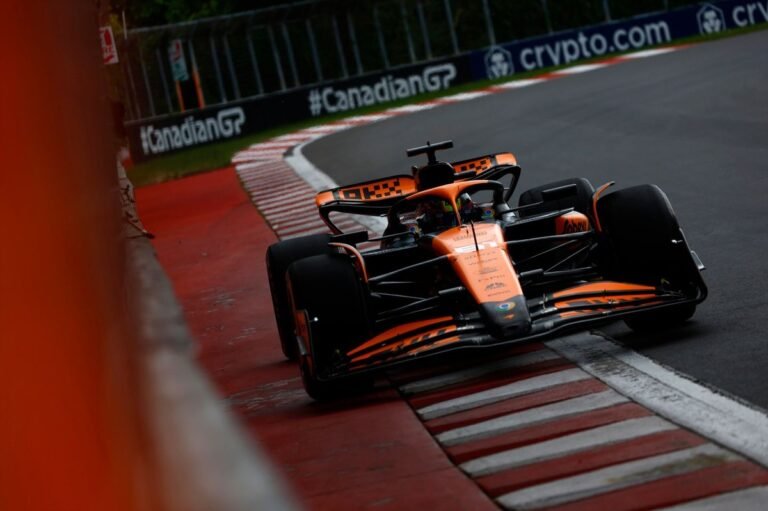Clash of Titans: F1 Canadian GP vs. Indy 500 Scheduled for 2026
Date: October 3, 2023
By: Filip Cleeren
In a significant scheduling development, the 2026 Formula 1 Canadian Grand Prix will coincide with the prestigious IndyCar Indianapolis 500, marking a rare clash of motorsport giants. This overlap will occur once every five years, according to sources at Motorsport.com.
F1’s 2026 calendar, unveiled earlier this week, shows a 24-race lineup with key date adjustments. Notably, the Canadian GP will take place from May 22-24, moving back by two weeks to allow for better logistical arrangements post-Miami, which is set for May 3. This decision aims to streamline freight operations while minimizing carbon emissions as part of F1’s Net Zero 2030 initiative.
The Canadian GP’s timing is particularly contentious as it runs directly opposite the Indy 500, which starts over an hour earlier. The overlap is expected to diminish viewer engagement for both events, a move F1 seems prepared to accept, prioritizing its operational efficiency and calendar consolidation over potential fan fallout.
"F1 is unlikely to change its calendar significantly for the Indy 500," said a source familiar with the discussions. F1 has previously scheduled races during major events like the Le Mans 24 Hours, reinforcing its focus on maximizing race days over fan considerations.
Montreal’s decision to hold the race later in May also stems from concerns about unpredictable weather, with organizers seeking to mitigate risks of severe conditions that can impair event preparations.
Additionally, Madrid’s inaugural Spanish Grand Prix is confirmed for September 13, providing a seamless logistical transition as it aligns closely with the Italian GP at Monza. The move from Barcelona, which is in its final contract year, reflects a strategic evolution for the series amid increased competition and modernization efforts in the calendar structure.
For 2026, F1 will navigate a busy schedule without triple-header races in May and June. However, a punishing end to the season remains, featuring six races in seven weeks from mid-October to December, as teams adapt to the challenges of a condensed season.
As F1 continues to elevate its global footprint, the implications of these calendar clashes will be closely monitored by fans and stakeholders alike, emphasizing the delicate balance between operational logistics and viewer preferences in the increasingly competitive motorsports landscape.



